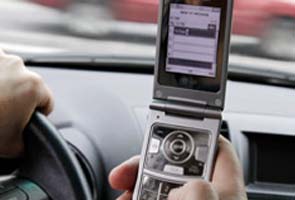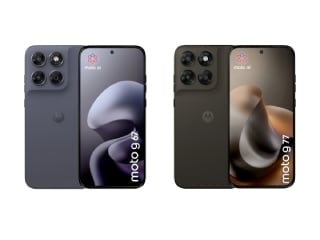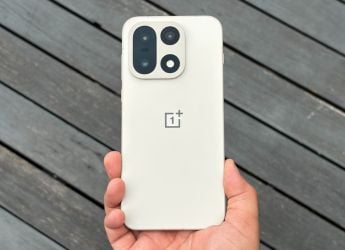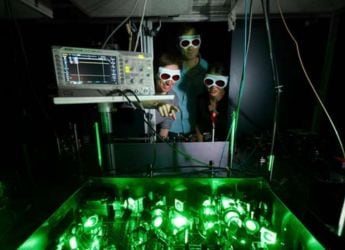- Home
- Mobiles
- Mobiles News
- Smartphones can work as medical labs too
Smartphones can work as medical labs too

"This method makes heart rate research more inexpensive, portable and straightforward," said James Heathers, the doctoral student from University's School of Psychology behind the project.
"The sensor, placed on a finger instead of using electrodes on the chest, is so small we can mail it to study participants," added Heathers, according to a Sydney statement.
Data on tiny fluctuations in our heart rate provides critical information on the state of our nervous system, and is essential for a range of psychological research including on anger, anxiety, stress and self-control.
At the moment, heart rate variability (HRV) research is done in a university lab with a group of study participants. Electrodes are attached to their chests to measure HRV and the data is recorded, one person at a time, using a lab computer.
"The idea struck me because I'm by nature impatient and my area is psychophysiology which is all about the relationship between physiological and psychological states," said Heather.
"By providing people with a sensor and then using their smartphone to process the data, we are no longer tied down to booking appointments in a university laboratory, and can record dozens of separate data streams at the same time."
Heathers collaborated with Simon Wegerif, a biomedical engineer. Wegerif's company, HRV Fit Ltd, already had an HRV phone app iThlete widely used by professional sports teams and athletes, for whom heart rate variability is an important measurement of their performance and recovery.
The challenge was to adapt a similar app into a tool that can collect and provide HRV data in a way useful to researchers.
"We have run tests of our sensor linked to a smartphone and the software is working very well. I expect it to be up and running and available for free in the next few months," said Heathers.
Heathers plans to use the HRV data to expand theories on the day-to-day fluctuations of the nervous system, and to collect data from groups that are traditionally hard to access.
These results were presented at the Australasian Society for Psychophysiology conference 2012.
Catch the latest from the Consumer Electronics Show on Gadgets 360, at our CES 2026 hub.
Related Stories
- Samsung Galaxy Unpacked 2025
- ChatGPT
- Redmi Note 14 Pro+
- iPhone 16
- Apple Vision Pro
- Oneplus 12
- OnePlus Nord CE 3 Lite 5G
- iPhone 13
- Xiaomi 14 Pro
- Oppo Find N3
- Tecno Spark Go (2023)
- Realme V30
- Best Phones Under 25000
- Samsung Galaxy S24 Series
- Cryptocurrency
- iQoo 12
- Samsung Galaxy S24 Ultra
- Giottus
- Samsung Galaxy Z Flip 5
- Apple 'Scary Fast'
- Housefull 5
- GoPro Hero 12 Black Review
- Invincible Season 2
- JioGlass
- HD Ready TV
- Laptop Under 50000
- Smartwatch Under 10000
- Latest Mobile Phones
- Compare Phones
- Red Magic 11 Air
- Honor Magic 8 RSR Porsche Design
- Honor Magic 8 Pro Air
- Infinix Note Edge
- Lava Blaze Duo 3
- Tecno Spark Go 3
- iQOO Z11 Turbo
- OPPO A6c
- Lenovo Yoga Slim 7x (2025)
- Lenovo Yoga Slim 7a
- Lenovo Idea Tab Plus
- Realme Pad 3
- Moto Watch
- Garmin Quatix 8 Pro
- Haier H5E Series
- Acerpure Nitro Z Series 100-inch QLED TV
- Asus ROG Ally
- Nintendo Switch Lite
- Haier 1.6 Ton 5 Star Inverter Split AC (HSU19G-MZAID5BN-INV)
- Haier 1.6 Ton 5 Star Inverter Split AC (HSU19G-MZAIM5BN-INV)







![[Sponsored] Haier C90 OLED TV | Dolby Vision IQ, 144Hz OLED and Google TV in Action](https://www.gadgets360.com/static/mobile/images/spacer.png)









